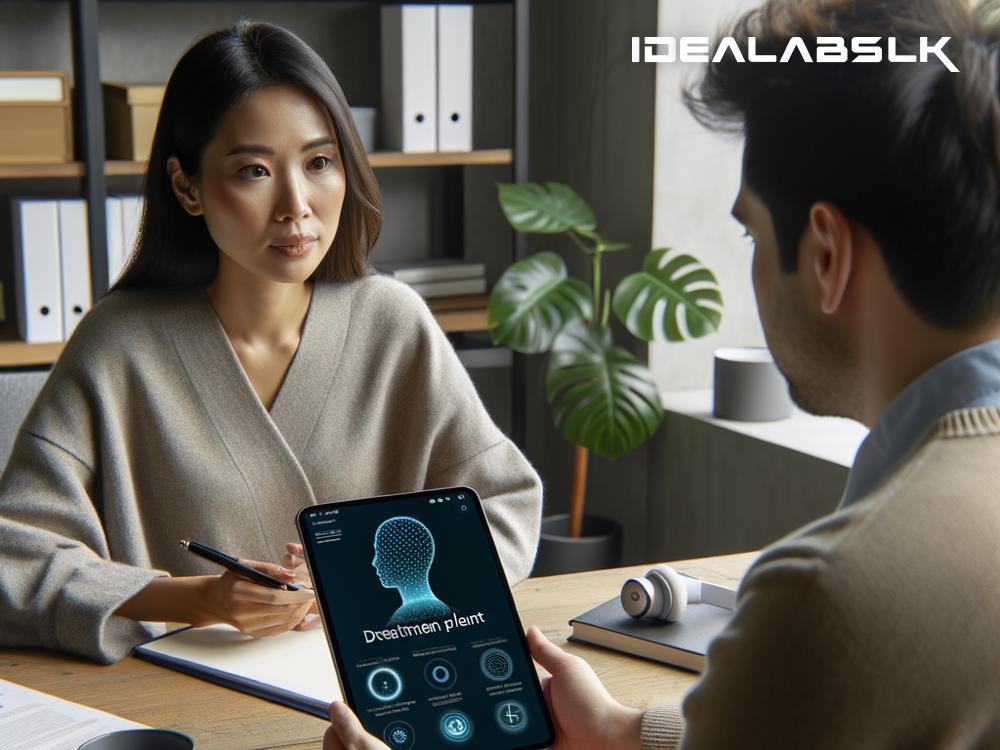How AI is Improving Mental Health Diagnosis and Treatment: The Role of Technology in Psychiatry
In recent years, the fascinating intersection of technology and mental health has become hard to ignore. As our understanding of the mind expands, so does our ability to use innovative tools to support mental well-being. At the forefront of this technological revolution is Artificial Intelligence (AI), a game-changer in the way we approach mental health diagnosis and treatment. But how exactly does AI fit into the world of psychiatry, and what benefits does it bring? Let's break it down into simple English.
What is AI?
Before diving into its impact on mental health, let's briefly touch on what AI is. Artificial Intelligence, in the simplest terms, is a form of computer technology that's designed to think and learn like humans. It can analyze information, make decisions, and solve problems, sometimes even more quickly and accurately than we can.
Spotting the Signs Early
One of the biggest challenges in mental health care is the early diagnosis of conditions. Often, people suffer silently for a long time before getting the help they need. This is where AI steps in. By analyzing patterns in speech, text, or even social media usage, AI can help identify signs of mental health issues way before they become severe. Think of it as a smart detector that picks up on subtle hints, alerting professionals and individuals to potential concerns early on.
A Personal Touch to Therapy
AI is also transforming the therapy experience. With AI-powered chatbots, individuals can receive immediate, 24/7 support. These chatbots are programmed to understand and respond to human emotions, offering a form of interaction that feels surprisingly personal. While they're not a replacement for human therapists, they can be a valuable first step for those hesitant to seek help or as an additional support between sessions.
Tailored Treatment Plans
Just like fingerprints, everyone's mental health journey is unique. What works for one person may not work for another. This is another area where AI shines. By analyzing vast amounts of data from various sources, AI can help doctors and therapists create personalized treatment plans. This means that treatments can be specifically tailored to each individual's needs, potentially improving outcomes and reducing the time it takes to find the right solution.
Beyond the Office Walls
Traditional therapy sessions are incredibly valuable, but they're not the only way to support mental health. AI-powered apps and programs extend the reach of therapy beyond the therapist's office. These tools can track mood changes, suggest coping mechanisms, and even guide users through mindfulness practices. For people living in remote areas or with busy schedules, these solutions provide essential support that might otherwise be out of reach.
Reducing the Stigma
One of the most significant barriers to mental health care is stigma. Many people are reluctant to seek help due to fear of judgment. By making mental health support more accessible and discreet through technology, AI is playing a role in breaking down these barriers. When individuals can start their mental health journey from the privacy of their own homes, it opens the door for many more to take that first crucial step towards healing.
Looking Ahead: The Future of AI in Mental Health
As promising as AI's current role in mental health is, we're only scratching the surface. Researchers and developers continue to push the boundaries of what's possible, working on even more sophisticated tools that can predict mental health crises before they happen, provide even more personalized care, and seamlessly integrate with other aspects of healthcare.
In Conclusion
The incorporation of AI into mental health diagnosis and treatment marks a significant leap forward in psychiatry. It's streamlining processes, making care more accessible, and personalizing treatment in ways that were once thought impossible. However, it's important to remember that AI doesn't replace human professionals but rather enhances the support they provide. As we continue to navigate the complexities of mental health, the collaboration between human empathy and artificial intelligence promises a future where mental health care is more effective, inclusive, and compassionate than ever before.

